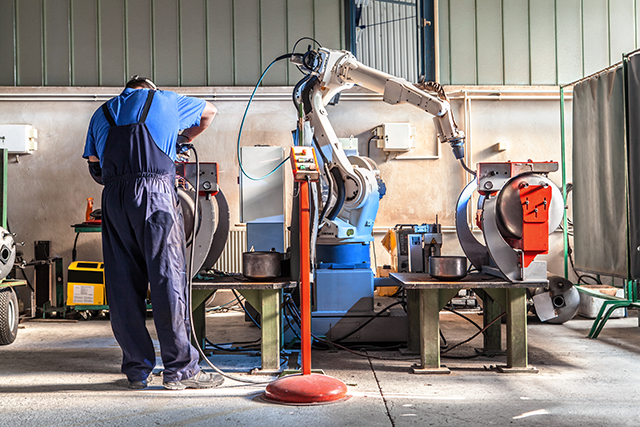ARTIFICIAL INTELLIGENCE IS A REVOLUTION AS IMPORTANT AS THE INDUSTRIAL REVOLUTION WAS
ON TARGET Translation has chosen to specialize in Artificial Intelligence (AI) because it’s a fascinating part of our future. And it's transforming how we live, work, and play, as it gets used in everything around us -- from Netflix to Facebook to new content marketing tools.
To put it simply, AI is a capability which allows a computer or machine to reason and perform tasks that typically require human intelligence.As AI use advances at breakneck speed, there is a concern that it will replace the need for humans in the workforce. Whether it will or not is uncertain at this point in time, but one thing is sure: jobs will become more interesting and businesses will gain in productivity and quality. As one example, in the health care sector, is already permitting practitioners to speedily analyze huge libraries of images and X-rays and tremendously accelerate the diagnostic process.
“I don’t want to be a just a pawn in an economic mechanism. I am part of what’s happening and I must bear responsibility for the consequences.”
— Joshua Bengio, world-renowned AI researcher and Head of MILA
(Montreal Institute for Learning Algorithms), speaking about ethical concerns in AI and the Montreal Declaration on the Responsible Development of Artificial Intelligence

ARTIFICIAL
There are many applications that a start-up company or small business can harness to maximize their potential: customer service can be improved, time management systems can be implemented, marketing strategies can be enhanced and tasks can be automated.
AI-powered “chatbots” can function as highly-skilled customer service assistants. Using AI and big data analytics, a chatbot is programmed with a wealth of information to rapidly deliver answers and provide support to your customer base. And since chatbots can analyze and interpret all interactions between customer and client base, they will eventually know your customers better than you do!
AI can also be used for product design, pricing decisions, marketing strategies, training and recruitment. And projections for the next 10 years envisage major growth in AI usage, with a concentration in the sectors of human resources, financial tech, transportation, manufacturing, energy, and health care.
Canada was initially the global leader in AI but is now competing with emerging AI superpowers in the USA and China. Going forward, four cities are likely to become AI hubs in North America: San Francisco, Seattle, Toronto, and Montreal. The Montreal and Toronto hubs do not rival their American counterparts in terms of tech financing opportunities, but they possess a significant advantage in AI research, driven primarily by the concentration of AI experts in Canada and their collective desire to remain in Canada. ON TARGET Translation is in good company!


